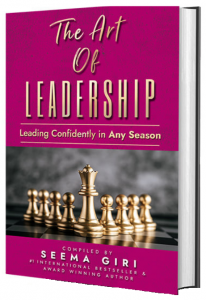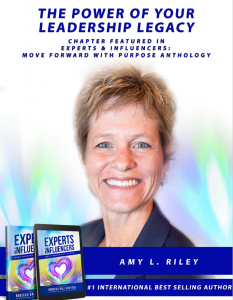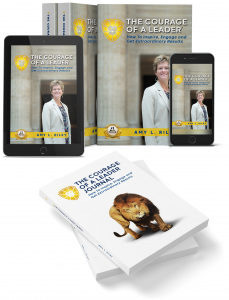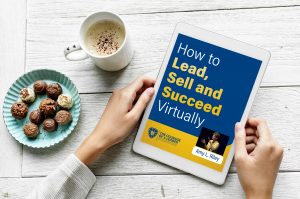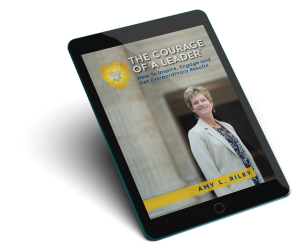How do you get out of the swirl of busyness and cynicism that it’s so easy to get into these days? How do you set aside doubts and imposter syndrome?
Rich Walker, CEO and cofounder of Quik!, joins us on The Courage of a Leader podcast to give us profound and practical ways to think about ourselves and our work that will have us being bold and creating the extraordinary.
You’ll love hearing from Rich!
About the Guest:
Richard Walker is the CEO and co-founder of Quik!.
Having started over 10 companies since age 12, host of The Customer Wins podcast, author of two books, and father to three boys, Richard empowers people to do their best work. Prior to starting Quik!, Richard was a financial advisor with Financial Network (currently known as Cetera) and a business consultant with Arthur Andersen. He started Quik! in 2002 to help people spend less time processing paperwork and more time on what they do best.
The best way to reach Richard is by email, rwalker@quikforms.com
About the Host:
Amy L. Riley is an internationally renowned speaker, author and consultant. She has over 2 decades of experience developing leaders at all levels. Her clients include Cisco Systems, Deloitte and Barclays.
As a trusted leadership coach and consultant, Amy has worked with hundreds of leaders one-on-one, and thousands more as part of a group, to fully step into their leadership, create amazing teams and achieve extraordinary results.
Amy’s most popular keynote speeches are:
- The Courage of a Leader: The Power of a Leadership Legacy
- The Courage of a Leader: Create a Competitive Advantage with Sustainable, Results-Producing Cross-System Collaboration
- The Courage of a Leader: Accelerate Trust with Your Team, Customers and Community
- The Courage of a Leader: How to Build a Happy and Successful Hybrid Team
Her new book is a #1 international best-seller and is entitled, The Courage of a Leader: How to Inspire, Engage and Get Extraordinary Results.
https://www.linkedin.com/in/amyshoopriley/
Resources mentioned in the podcast
The Inspire Your Team to Greatness assessment (the courage assessment).
How can you inspire our team to be more proactive, take ownership and get more done?
You demonstrate and empower The Courage of a Leader. In my nearly 3 decades of work with leaders, I’ve discovered the 11 things that leaders do – even very well-intentioned leaders do – that kill productivity.
In less than 10 minutes, find out where you’re empowering and inadvertently kills productivity, and get a custom report that will tell you step by step what you need to have your team get more done.
https://courageofaleader.com/inspireyourteam/
Richard Walker’s first book
It’s My Life I Can Change If I Want To
https://www.amazon.com/Its-Life-Can-Change-Want/dp/0578074214
Thanks for listening!
Thanks so much for listening to The Courage of a Leader podcast! If you got inspired and/or got valuable leadership techniques you can use from this episode and think that others could benefit from listening, please share using the social media buttons on this page.
Do you have questions or feedback about this episode? Leave a comment in the section below!
Subscribe to the podcast
If you would like to get automatic updates of new The Courage of a Leader podcast episodes, you can subscribe to the podcast on Apple Podcasts. You can also subscribe in your favorite podcast app.
Transcript
How do you get out of the swirl of busyness and cynicism that is so easy to get into these days? How do you set aside doubts and impostor syndrome, and be bold and extraordinary, Rich Walker, CEO and co founder of quick joins us on the courage of a leader podcast to give us profound and practical ways to think about ourselves and our work that will have us being bold and creating the extraordinary. I'm glad you're here to hear from Rich.
Amy Riley:Welcome to the Courage of a Leader podcast. This is where you hear real life stories of top leaders achieving extraordinary results. And you get practical advice and techniques, you can immediately apply for your own success. This is where you will get inspired. And take bold, courageous action. I am so glad you can join us. I'm your host, Amy Riley. Now, are you ready to step into the full power of your leadership and achieve the results you care about most? Let's ignite the Courage of a Leader.
Amy Riley:Hi, Rich, thanks for joining me on the Courage of a Leader podcast today.
Richard Walker:It's my pleasure to be here. Thanks for having me,
Amy Riley:I'm looking forward to talking. You are boldly and painstakingly building and rebuilding a software that's easy to use and provides exceptional value for your customers. To do so requires the courage to be bold, and to go for extraordinary. What drives you to be bold, and to create the extraordinary.
Richard Walker:So I mean, I have to admit, part of me feels like I'm not bold enough. I look at others. And I'm like, Oh my gosh, that takes such huge leaps forward. But the reality is, I think there's a couple of things that drive me number one is people in my life telling me I couldn't do something. So I'll give you a short story. When I was 12, I started my first business. And in one day is time I turned $300 into over $1,100. And this was back in the early 80s. So that was a lot of money. And I use that to buy my car when I turned 16. But I started thinking oh my gosh, being an entrepreneur, is it I'm going to become a millionaire by age 23. Oh, man, so many people said that's not going to happen. And don't set my hopes too high. Don't have my expectations Ohio get crushed things like that. And a lot of people just didn't believe in me for whatever reason. I was a poor kid, I came from nothing. So what what did they have to believe in? Like, how am I going to be the exception to the rule? Well, that angered me, internally, not externally, but internally. And that became a fire that drove me and still to this day kind of drives me and it's not a pain point. It's just more of like, Don't doubt me. I know what I can do. Yeah. So that's a big driver. Yeah. Well,
Amy Riley:those are amazing results. Well,
Richard Walker:I It's a fun story, actually. But yeah, it was it really impressed upon me that if you give people something they want, and it's obvious to them, they'll pay you for it. So I went from having nothing to having money suddenly, and I was just struck with Wow, oh, this is what life should be like. So I knew I wanted to be an entrepreneur. I said the other thing to answer your question, what drives me to be bold is I like to believe that we can live life the way it could be, not the way it is. And I've always approached my life that way. I'm an optimist by nature. I look forward into the future to say how can I do something today to make my life better in the future? And it's not that I don't enjoy today to I love today, I love being in the present. But that helps me look at the world differently and say what is possible? So challenge me to do the impossible tell me I can't do it. And let me see a future that nobody else is seeing and i i get driven by that.
Amy Riley:What is it about you? Which what personality traits? What drivers? Have you have that perspective that looking for what is possible? So
Richard Walker:I think there's a couple other answers to that which actually go very deep to one is oftentimes in my life, I felt weak, physically weak, maybe emotionally weak. I saw my parents yelling and it made me cry. And I felt like wow, why can't I hold this back? financially weak? And I think that drive to not be weak as part of it. And so yeah, I mean, that's a big part of it. The second thing is in college, I was exceptionally poor. There were days I'd wake up on my With $5 to my name, and I have to get through the whole week before I get my paycheck. And I had this, I had a mentor who said, Hey, rich, you know, if you need the money, it'll be there. And that caused me to kind of figure out how to get the money. And so I came up with a methodology, which is the simple premise. For every choice we have to make in life. I presume that there are at least 43 different choices that you can make. Why 43? It's just a big number. It's an odd number. It's sufficiently high to make your dream above Yes, and no, true and false black and white. And it's not that there's actually 43 Sometimes it's 100. Sometimes it's 12. But it forces you to look and say, what is actually possible? Yeah. Do you like getting blood? No,
Amy Riley:no, I don't do well, I have to have the ice on the back of my neck from the beginning. Yeah,
Richard Walker:well, there's, there's companies that will pay for your blood. I didn't do this. By the way, there's just an option I looked at like, there's plasmapheresis, they will pay for donations of blood or white blood cells, etc. In certain circumstances. So that's a way to get the money, right? It's kind of crazy. If you say, how many options could there be. And then you start looking at the world from a bigger perspective, you start to see there are things that other people don't realize that are opportunities. And therefore that's how I can see where to drive myself, my family, my company, my team, anybody forward? Yeah,
Amy Riley:there are at least three things that I want to underscore about what you just told us regarding perspective, rich and how we see things. So first of all, I heard that you are told as a kid, like you can't be that millionaire by 23, or whatever age you are saying. But then you also had a mentor that said to you, if you need the money, the money will be there. Right? So I'm seeing you choose, who am I going to listen to? Right? I'm gonna choose to have that voice running around in my head. Not these other naysayers, right? Who aren't we're trying probably trying to protect some young dreamer kid. Right. But you believe that you knew it. Interesting what you said about that perspective of what is possible, and tapping into those times where you felt weak? I think so many of us, when we're not feeling strong, when we're not feeling capable, when we're concerned about things. We don't like to go there. We don't like to think about that. But gosh, could we have that be a driver? Could we actually look at that situation? And be? How do I want to shift this? How do I want to choose to move forward? And there's like 43 different choices in front of me. So I love that I think so many people can get stuck into that it's a or b, think, you know, really resourceful? And we really move forward in life like plan when Plan A is not possible. It doesn't mean you have to resort to this only other option be exactly right. Lots in between.
Richard Walker:would I feel if I had done it:Amy Riley:I love this. What do I know about myself right now? And I like how you're grounding that in ourselves. Right? It's not Oh, uh, you know, the knowledge of the people from YouTube, I have a cell phone and access to YouTube right now, I could watch a video. So looking at what are my capabilities, my resources in that moment, just taking it from that AI perspective, boosts the confidence, and I love how am I going to feel like once I do these month end reports, three months in a row. I know after I've done this thing for a couple of weeks, how am I going to feel about it? Right?
Richard Walker:Because you're gonna feel great. When you've been doing it for so long. And it's second nature, you're like, Well, this is easy. I can do this. So try to borrow that you won't have 100% confidence on day one. But you'll have more than 1%. Yeah,
Amy Riley:ndersen, he started Quick! in:Richard Walker:Yeah, me too. I love this type of stuff. Thanks. Yeah.
Amy Riley:So besides telling others some of the things that you've already told us, how do you empower others around you to be bold.
Richard Walker:So I think it's about a couple of things. Number one, we were talking about this yesterday with somebody, when you recognize somebody for what they like and what they enjoy. Yeah. And I think most people who take a job, for example, are taking a job in a role that they actually like and enjoy. I'm not saying they like every task. And I'm not saying everybody's where they want to be. But for the most part, you're focused on something that you enjoy. So if you recognize what people enjoy, and then you let them do more of it, they're naturally empowered. So if you remove roadblocks, for example, if you make it part of their job, if you give them more responsibility in that role in the thing that they like, they will feel empowered to do it. Second thing I feel is you have to let them fail. And here's a funny thing, Amy as a as an entrepreneur and founder of a company. How many times have I failed? How many times have I let myself fail, I didn't beat myself up, I didn't fire myself, I didn't dock my pay, right? I didn't have to do whatever punishment people think are going to happen to them. So if I allowed that for me, why can't I allow that for my team members? Yeah. Right. So I feel like if, if I enable them to do more and take on more responsibility, I also equally have to enable them to fail, live with that failure, mistake, lesson, etc, and grow from it. Plus, I learned from somebody else, if somebody made a million dollar mistake in your company, is that the time to fire them? No, you just paid a million dollars for that lesson, don't lose out.
Amy Riley:That's a really good point.
Richard Walker:That's a really good point, obviously, make a judgment call, the person may still be an idiot, you don't want them. But that's a different thing. The third thing I would add to this that is instilled vision. And not everybody is a visionary. This is something I've had to learn the hard way. In fact, I used to think everybody wanted to be the CEO of my company that turns out exactly. Nobody wants to be the CEO of my company. So I therefore have the role of visionary. And I used to get frustrated, like why aren't you dreaming about this? Why aren't you coming up with this great idea. And what I realized is that's not everybody's passion, desire, strength will etc.
Amy Riley:Thanks, just looping us back to the first thing, right? Go back to
Richard Walker:you an example. At the end of:Amy Riley:I think that's really important, what you said rich about an articulating how they play a role, and understanding how what they like and enjoy is going to be leveraged as part of this journey. Yeah, how I define strengths, by the way, those things that we're both good at, and we passionately enjoy. Because then when we are getting people's talent, and their energy, right, we are getting the very best of them. Yeah.
Richard Walker:And this is something I realized back in college, how many people love public speaking, the fear of public speaking is right up there with the highest of fears, right. And I was guilty of that. In college, we had a class where we had to do public speaking on videos, we could watch ourselves, play it back, and my gosh, I couldn't speak. I had the nervous twill in my voice, I have this Twitch, I pull up my shirt over and over again. I had all these things. And I watched all that. And I asked myself a question. If I really want to be a fortune 500 CEO one day, what is it going to take? And one of the things I admire about those leaders is their public speaking abilities. As a man, I'm so terrified of public speaking, how do I become good at that? And then I realized something. What you become good at is something you love. I was good at skateboarding, and surfing and snowboarding. Because I loved it. I enjoyed it. So I said, I need to Love Public Speaking then. Because if I loved it, I'd want to do it. And I'd become good at it. Because it was something I wanted to do. I faked it till I made it, by the way.
Amy Riley:Okay, I was gonna say how do we tell us how we love something that we don't love.
Richard Walker:mean, I've spoken in front of:Amy Riley:Yes. Oh, I love it Rich, you you started at belief. Yes, I talk about this simple model with leaders all the time, that if we want to change our results, how we get to result is actually starts with our beliefs, what are we thinking and believing about ourselves about the situation about the people around us about what's possible, that leads to our actions. Because, you know, if I'm thinking, Oh, they're never gonna get it, this is not going to make a difference in the marketplace, we're never going to fit this, this, this is a really complex problem with forms, right, we're never going to figure it out, then there's a lot of actions I'm not going to take or I'm not going to take powerfully. And that's going to impact the results that we get. So to be able to tell yourself, I love public speaking, I am going to be um, be that person that loves public speaking, that would lead you to actions you otherwise wouldn't even think of taking right
Richard Walker:now. Because you're terrified, like, oh my gosh, be up on stage all those lights and what are people gonna think of me? Oh, my gosh, am I the right person? Do I know what I'm talking about? All those thoughts? They start to melt away when you have a different set of beliefs. They really do.
Amy Riley:And that's literally how we change our minds. Well, actually, ways.
Richard Walker:Yes. And that is the topic of one of my books. Like one of my books is my first book. It's called, it's my life. I can change if I want to. And it's built on the premise about beliefs. And and I wrote this bullseye chart, where if you think about the center of the bullseye as a fact, the fact is, it's 55 degrees. Right? You can't change the fact it's 55 degrees. All the scientific measurements show it's 55 degrees. Yeah, what you believe about the fact is the next ring in the bull's eye. Say what you believe about the fact is going to help you interpret how that fact is. So I don't know if you read the story of Shackleton's journey to the South Pole, and how he got stranded for 18 months with his his crew, and everybody survived starving and freezing over an 18 month period. Okay. Well, there's a interesting part of that story. They were so cold for so long that when it got to just freezing temperature, you know, when it came up from negative 20, all the way up to positive 20, or positive 30. They were sweating. Oh, my gosh, they had to take all their clothes off. They were too hot. Yeah. And yes to you, and I would be freezing. It'd be crazy. But it's still a fact. Right? So their belief about that, which of course was physical, but their belief about the temperature was interpreted differently than your and my belief about that temperature, even though it's still the same temperature, it's still an immutable fact. Yeah, but then this drives to something else. If you have beliefs, interpreting facts, those are what drives your thoughts. The thought of I'm cold, or I'm hot, the thought of I'm scared or I'm confident, and how we feel about it. Yes, yes. And those thoughts, those so here's the thing, a lot of people think they have to change their beliefs by changing their thoughts, I say it's the opposite, change the belief, which will fuel the thoughts, and then you will remove the tape loops, you know, the incessant dragons in your head telling you the wrong things. They're telling you the wrong things, because they're coming from the beliefs, change the beliefs, and they'll stop telling you those things. And then the outer ring in this Bullseye is reality, meaning how you perceive the world. And how you go through the world, is filtering facts through your beliefs, which emanate the thoughts in your head, and how you articulate yourself. And therefore, I love how you said that the actions you end up taking?
Amy Riley:Mm hmm. Oh, I love this, we will get the link to your book in the show notes. Yeah, I'm, I am not a neuroscientist, but I needed by how our brains work. And that we can literally change our minds literally change these loops that are going on inside of our heads and beliefs are the linchpin.
Richard Walker:And, you know, being in software development, I was a software programmer, and for part of my career, I really think of it as reprogramming your mind. Because just give it a different instruction set to work from and your mind, there's a crazy aspect of your brain, if you ask it a question, it will, it will give you an answer. Yeah, it doesn't matter if the answer is right or wrong, it will give you an answer. And so I thought, How do I use that? Nice,
Amy Riley:what a perfect metaphor for you. All right, how can leaders know Rich if they and their teams are being bold enough?
Richard Walker:I, I don't know. Because again, I started by saying I don't think we're being bold enough. I believe that you have to look at your progress. I heard this really great quote, you've already achieved a whole bunch of goals that you set out for yourself. So why aren't you happy? And it just reminds me to say, wow, look back at where you came from, look back at what you've done, and measure it and ask yourself, What are you doing? You know, we are the most successful we've ever been in our company. And yet, I can say, wow, we're not growing fast enough. We're not building enough profit. We're not, you know, adding enough sales or people to the team or whatever. But man, if I look backwards, we've come a long, long way. So I would say that's really the biggest measurement is understand where you are accepted, look at it, have gratitude for it. But then challenge yourself, what are the opportunities in front of you? So I mentioned that in 23, we said, Let's build a product with AI. Yep, we got the product out in less than a year, and went into production in November. And this is the crazy thing to me, I've told entrepreneurs this that your first idea is not your best idea. It's just the one that got you started. It took me 21 years to come up with the best idea we've ever had for our company. And our new product form extract is going to completely transform how we can help our customers, how many more customers we can serve, and really the impact we have, which of course is going to lead to our growth and evolution of our own company. So that's a bold thing to because we took something we had never done and went after it and built the product with a partner and brought it to mark it. And here we are. Yeah.
Amy Riley:I love that. I also love that you started your answer to this question about how do we know if we're being bold enough? By inviting us to look back? Because I think that's a bit counterintuitive. People might think, Oh, are we being bold enough? We got to look ahead. We got to we got to make that vision larger and more audacious. Yet if we look back at what we've accomplished, and I think this is a pitfall All and often leads to impostor syndrome, right? Where I mean, we're always looking at the gap in front of us, rather than the gap that we've closed behind us. But if we look at that, and I love how you said, measure it, and really know this, this is what we've done, this is what we've accomplished today. Gosh, that builds the confidence that builds the belief. And now you're standing on that as looking forward. And of course, then challenging yourself. Right? What what do we want to do? And I'd love your challenge for the teams make your own lives easier.
Richard Walker:So Amy, what's really interesting about your question about how do we know for being bold enough is inside that question is a self judgment. It's a question of, Am I good enough? Am I doing enough? Am I achieving enough, right? I'm not saying it's a bad judgment, but it is a judgment nonetheless. And anytime I'm going to judge myself, I'm going to judge it on the past, as well as the present as well as what I think I can do in the future. And not just on the future, because it's so easy to think I don't have enough and live in a scarcity mentality. Across all people at all stages of life and all stages of income. The average person just wants to make 10% more, and their life would be better. So whether you're making a million a year, 10 million a year, 100,000 a year, 10,000 a year 10%, more, on average for everybody would make their lives better. Wait a minute. Didn't you say if you made 100,000, you'd be happy. Didn't you say if he made a quarter million, you'd be happy. You still need 10% more. So I that's that's just a natural thing I think is the self judgment has to come with looking at where you came from. So that you don't go down the deep end of negativity and lose out on what you have right now.
Amy Riley:Yeah, yeah. And constantly living in? I'm not enough. I need more.
Richard Walker:Yeah, exactly.
Amy Riley:So let's say one of our listeners is a mid level leader, they've got a team of five or eight, what's one practice or habit that you would suggest for them to foster boldness and going for it inside of the team?
Richard Walker:Fundamentally, you have to give them the space to do it. You have to allow for it, they'll share another belief of mine. If somebody else is stressed out about something, I don't have to be. Okay. Yeah. Okay, so if I have a team, and their job is to do something and be stressed for it, I won't have to be, which if I am that leads to micromanagement. Oh, did you get that done? Was it done? Right? Instead, just let them do it. empower them to do their best work and trust that they're going to do their best work? Measure that too, and see if it's working or not? Yeah, so you know, it's easy. Like we have a very, very high level of customer service expectation, like, get back to people in the same day, if not the same. Our saw that in one click or one, one message, that kind of thing. And when things start to drag on, and a customer's pinging us saying, Hey, I'm not getting this answer, and they escalate it, it's easy for us to think as leaders, oh, my gosh, my team's not performing. And then we come to find out the answer is really complex. And what the person was doing is putting together a very thorough answer with examples and screenshots and details and links to articles. And so if you're empowering them to do their best work, you have to look at the whole picture, and give them the space to do it. And if it's not meeting certain parameters, needs metrics, however, you look at running your business, then bring that to them and say, Hey, how could we do this faster? It might just be they're overwhelmed and need more help. It might be that they didn't prioritize, as well, who knows. But I think you got to give your team the space to succeed and fail if you want them to actually be bold, because what most people care about with their job, not losing it. So you got to take that fear away from them. Oh, man, I won't name names, but one of my team members came to us and I kind of think of it as they came from an environment where they were punished. And so they expect that to happen in this environment. And so of course, they're apologetic when when something happens, and they feel terrible, and they're super stressed, and I've had to say, climb off the ledge. We didn't destroy the company, we didn't harm a customer, nobody's going to jail. You learn something from this, let's see if we can do something to make it so we don't have to do this again. But guess what, I'm not angry. You're not in trouble. And it probably took a solid year, year and a half for that person to overcome those fears. And those traumas, let's say from a past workplace, and that took me giving them the space to do it. And now the outcome having been here for a couple of years now the outcome is that person is taking bigger leaps forward. They're taking on more responsibility without asking me they're doing things to improve our company because As they know, it's the right thing to do. And they know they can take the risk to try it. And it's not that they do it in a vacuum. They come we talk about, et cetera. But I no longer have to suggest it. They're thinking for themselves. Nice.
Amy Riley:And I would venture to guess that that is due to a substantial shift in beliefs.
Richard Walker:Absolutely. Absolutely. Right.
Amy Riley:I also want to double click on the first thing that you said, when I asked what's the one practice to foster boldness, that giving the space for them to do it, and I'm hearing to define how they're going to do it, it loops back to the second thing that you said, when I asked how do we empower others to be bold? Let them fail. Too often that leaders will delegate something, and then Oh, it's getting close to the deadline, or this is not quite going the way that I envisioned it, you know? And then and then we scramble to take it back. Yeah, that mindset, I'm thinking how that can transform things for me that when I delegate this, I don't have to be stressed about it. Yeah, I find that rich, I either play on one or the other side of the continuum, like, sometimes I will delegate something, and I will completely forget, it will just go out of my mind. Right? Like that's, that is with them now. And I forget about it. But other times, I'll delegate it, and I'm like, I'm still thinking about it, right? And it makes me want to poke at it. Rather than just telling myself, you have you've delegated the thinking and the worrying and the stress around this to someone else. Yeah, that's like the most empowering thing for everybody in the situation.
Richard Walker:It's empowering for yourself. And I'm gonna give you one of the hardest examples to do this with that we had, we faced this so many times in our history, thankfully, not for the last several years. Amy, I can't tell you how many times we didn't know how to make payroll. How stressful is that you can't pay your team, you can't pay yourself. I am very grateful to have a CEO on my team, a partner in my company, whose job was to figure that out. So because it was his job to figure it out, even if he told me, Hey, we got to figure out how to pay payroll this week. I had no stress about it. Because my belief is he's stressed about it, he will figure it out. He'll ask for my input. And yeah, sometimes we took out more home equity line, you know, to go borrow to do it. Sometimes it was okay, I will just go without a paycheck for the fourth paycheck in a row. You know, whatever it is, I'll go borrow against credit cards. We figured it out. But the point is, I didn't create stress in myself, I didn't create worry myself, which, what value would that bring? If I'm not personally working on the solution? There's no sense of me having the stress about that problem. Because that takes me away from everything else I have to do. And what's the best way to solve the revenue problem, go make more revenue? Or hey, so if I've taken all the stress of how do I pay the bill that is due versus how do I just go build the company more, I will get to go build the company more. So it's very empowering for yourself to have that kind of belief that if somebody else is worried about it, you don't have to be?
Amy Riley:Okay, this is interesting, Rich, as I was listening to you, I was okay. Like, rationally I get that. That would be great, right? I've given that concern to somebody else care about the people that work at this company, right? Like, how do I switch that off? But then when you said, what can you influence? What's the most important thing for you to focus on in the moment that I thought, Okay, I can't control this thing, right, or that's already been delegated to somebody else. If I can focus my, my time and my attention and my energy on the thing that is going to be useful long term, then I could maybe get closer to bringing that dimmer switch all the way down. On the other job. Yeah,
Richard Walker:for sure. I'm not saying that you won't feel stressed at some point, like, oh, rubber meets the road, we got to actually solve it today. We got to put money in the bank somehow. But there's amazing things that happens. This comes back to that belief I got from my mentor, if I need the money, it will be there. Yeah. Which has led me to find ways to get money I never thought about before. And it could be locked, like suddenly a credit card transaction from a big customer comes through that's happened before. Yeah. Sometimes it's punishment. Like I just can't pay this vendor, they're gonna have to suffer for an extra week or something. I hate doing that. But there are levers in your business to move money around and figure it out, as well as in your personal life. So therefore, you'll figure it out. And if you know you can figure something out. You have confidence of yourself therefore, or knowledge of yourself. Therefore you have confidence, which I'll share when it leads to my definition of what is mental strength. Okay. mental strength is defined by the conversation you have with yourself and a hard time and a difficult moment. Okay. What are you telling yourself about that flat tire? My life is ruined. This is the worst thing that's ever happened to me. Are you saying to yourself? Yeah, are you saying yourself? I'll get through this? I'll find a way. I have methods. I've solved other problems. Yeah. So that idea of mental strength is defined by how you talk to yourself during these hard times. And that's also part of this. So going back to your question of, how do I actually feel through these times, it's one thing to say it, but to actually feel it differently. It all comes back to these beliefs. And it's a layering of multiple beliefs. For me, that helped put me in a position of feeling like yeah, I really am not going to stress about this.
Amy Riley:Many of us have heard the phrase, culture eats strategy for breakfast. Drucker has made that one popular. I have said, belief eats behavior for breakfast. And everything that you have said today is making that point that, you know, often it's like, there's too much emphasis placed on mechanically robotically getting all these behaviors right. And worse, right. And but nearly everything you said today, pointed to grounding ourselves in a strong personal and empowering belief, and operating from there. And we can build those beliefs off of facts, we can build those beliefs off of evidence of what we've accomplished in the past. And we can also build them off of what's possible in the future. Yeah, I'm gonna feel when I've been doing this for three months. Right,
Richard Walker:exactly. So it's very much the you need to be versus do. The doing can help you be that thing. But being is believing. And then you actually naturally do the behavior. I love how you've looked at that. So yeah, beliefs eats behavior. I love it.
Amy Riley:Excellent. Thank you so much for sharing your thoughts. And from your experience with us Rich today. Really appreciate it.
Richard Walker:Thank you for having me, Amy. I really hope that I've helped somebody and inspire them in some way. This has been a lot of fun. Thank you.
Amy Riley:I'm sure you have. You've inspired me.
Amy Riley:Thank you for listening to the Courage of a Leader podcast. If you'd like to further explore this episode's topic, please reach out to me through the Courage of a Leader website at www.courageofaleader.com. I'd love to hear from you. Please take the time to leave a review on iTunes. That helps us expand our reach and get more people fully stepping into their leadership potential. Until next time, be bold and be brave because you've got the Courage of a Leader.


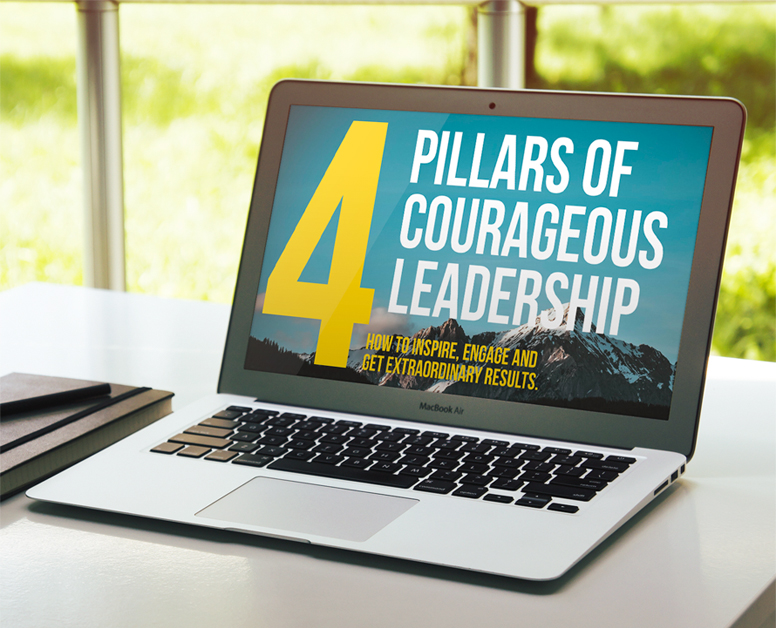 A Summary of The Courage of a Leader® 4 Pillars
A Summary of The Courage of a Leader® 4 Pillars